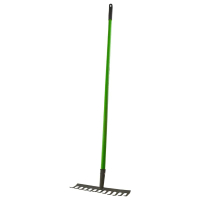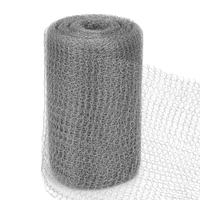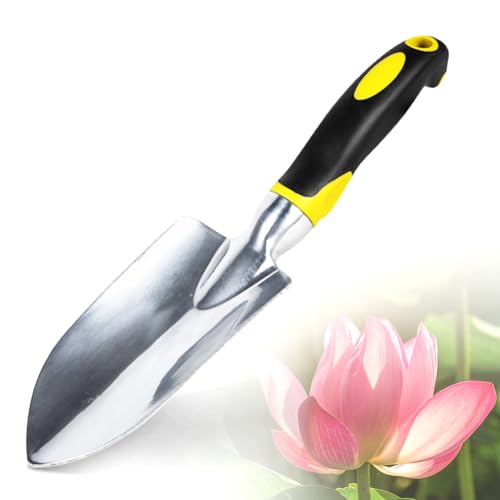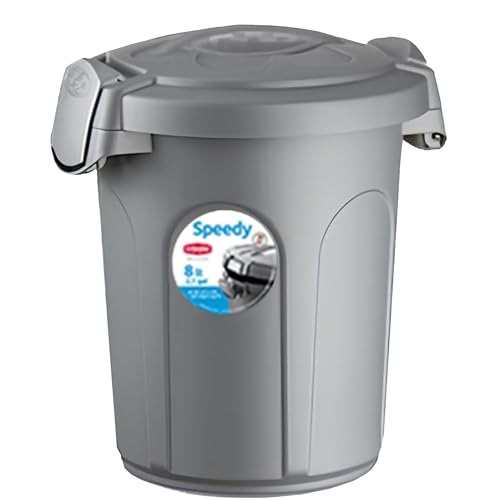How to keep rats out of your garden – 5 top tips from pest control experts
Are these pests running rampant in your garden? Here's all the help you need to keep your outdoor space rat-free
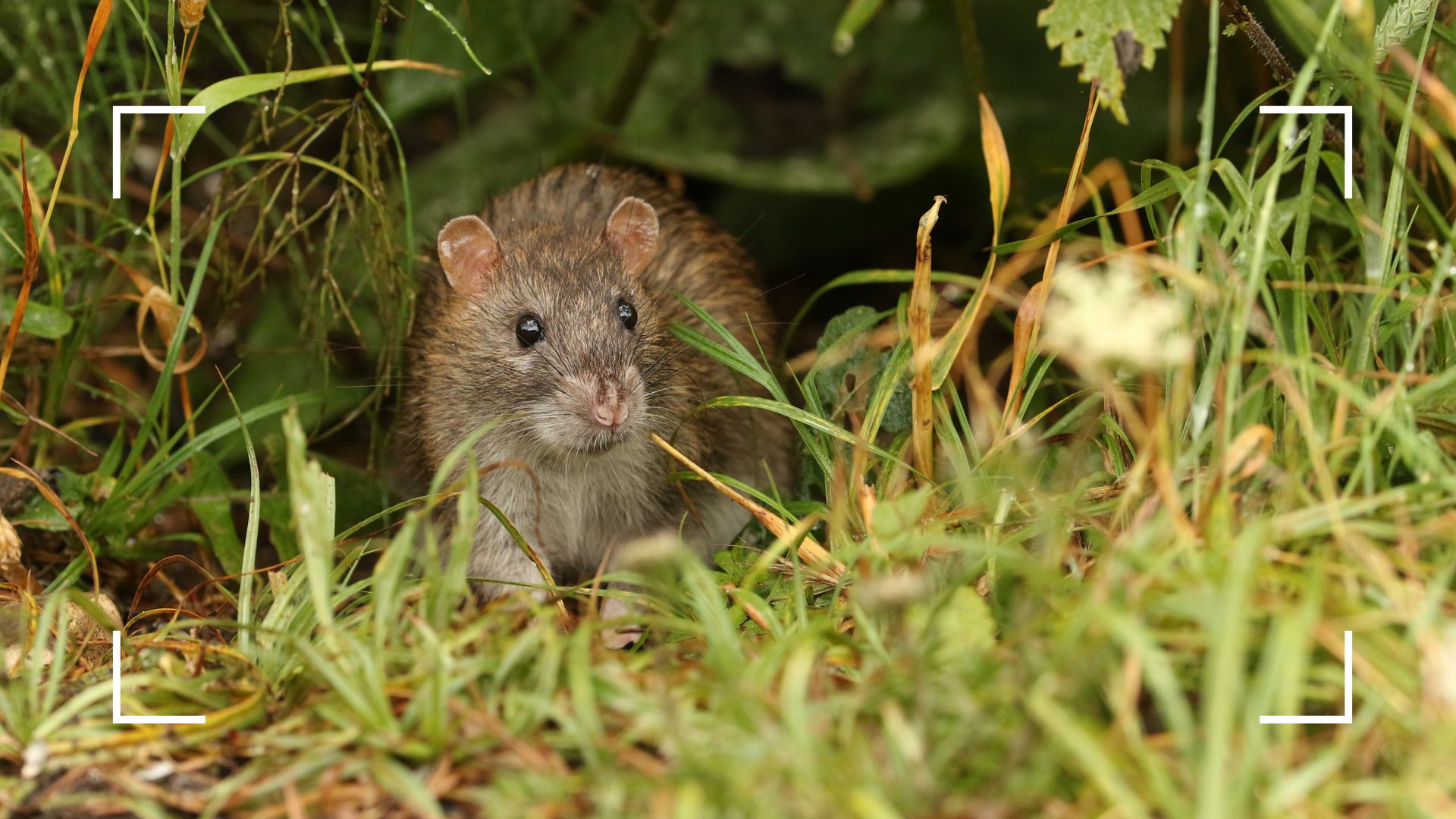

Have you noticed these unwelcome guests visiting your garden? Here are some expert tips to keep rats out of your garden without causing any harm.
Although they don't pose any harm to humans, finding rats in your garden is not quite what you might have had in mind when trying out the rewilding trend. And while you may have mastered how to keep pigeons out of your garden or how to keep foxes out, rats are a whole different story.
We have spoken to pest control experts to uncover the best course of action when you notice those pesky rodents rummaging around your space.
How to deter rats from your garden
Ready to reclaim your garden back from some rogue rodents? Follow these steps and your glorious garden trends will soon be restored to their previous peaceful and serene status.
1. Eliminate potential food sources
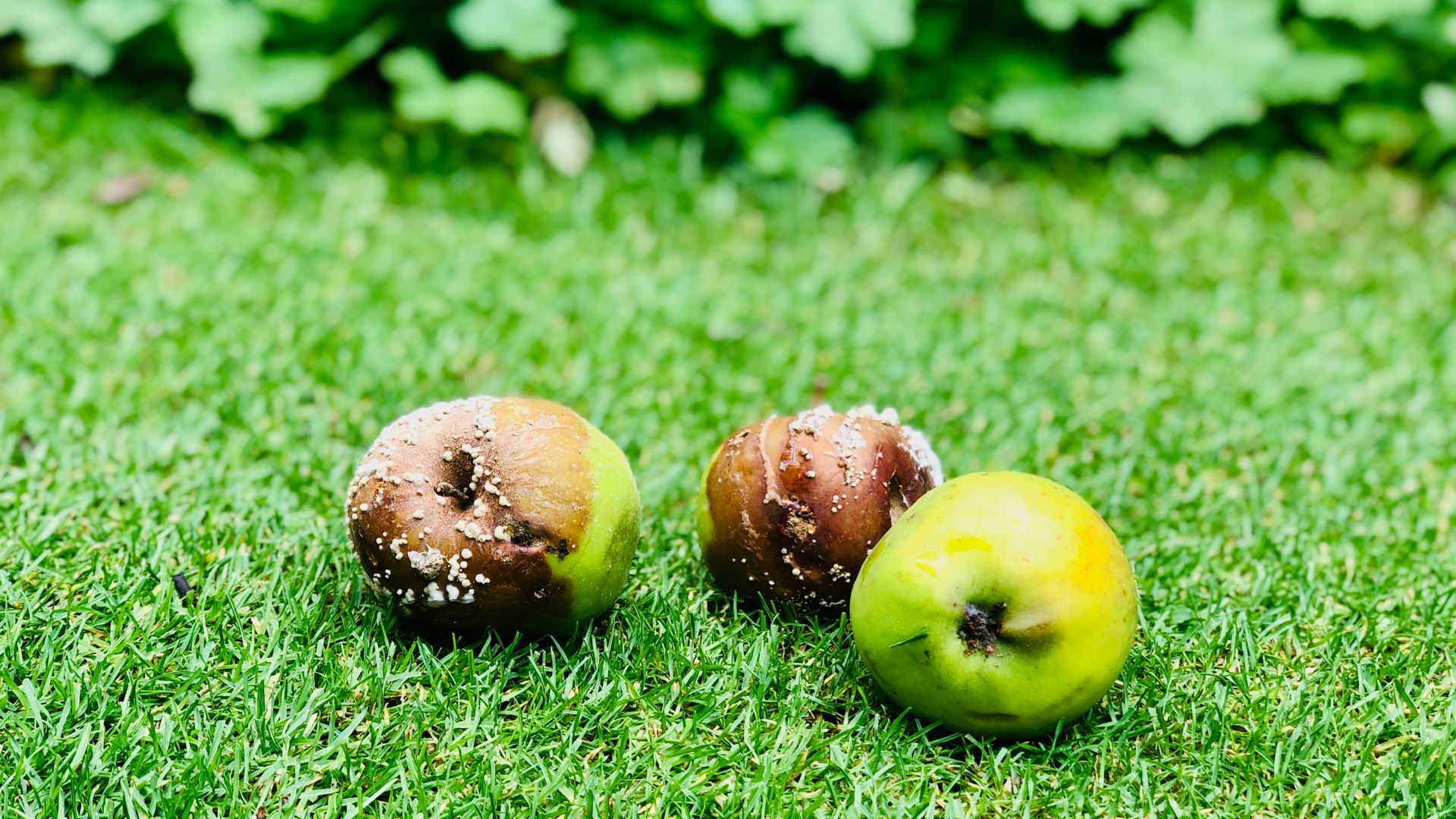
First things first you need to completely eradicate any reasons why the little furry creatures might be entering your garden in the first place. Similar to getting rid of tiny black flies in your house, removing the food source is the best place to start.
"One of the key steps in rat prevention is to eliminate any potential food sources in and around your garden," reveals Sarah Beck, the operations manager at The Pest Master. "This includes securing bird feeders, compost piles, fallen fruits, and unsealed rubbish bins."
Just removing these small sources of food will make a huge difference, especially when you consider the fact that rats aren't all that picky when it comes to what they eat.
Sign up for the woman&home newsletter
Sign up to our free daily email for the latest royal and entertainment news, interesting opinion, expert advice on styling and beauty trends, and no-nonsense guides to the health and wellness questions you want answered.
2. Keep on top of your garden maintenance
Whilst you might know how to mow your lawn frequently, other spots in your garden can welcome rodents if left unattended for too long.
"It is also important to clean up fallen leaves, trim overgrown vegetation, and keep your garden free of debris, as these can provide hiding places for rats," says Sarah.
These areas in your garden where plants can tend to become overgrown are perfect hiding spots for rats and may even become nesting places if left too long.
Shelter is one of the key reasons rats might be entering your garden, so taking this away from them along with any food source will immediately lower your chances of seeing them.
Carbon Steel Garden Rake, £10.68 at Amazon (was £11.25)
Lightweight yet strong enough for all of your garden maintenance needs, this affordable rake will help you keep on top of your outdoor space.
3. Seal off any potential nesting sites
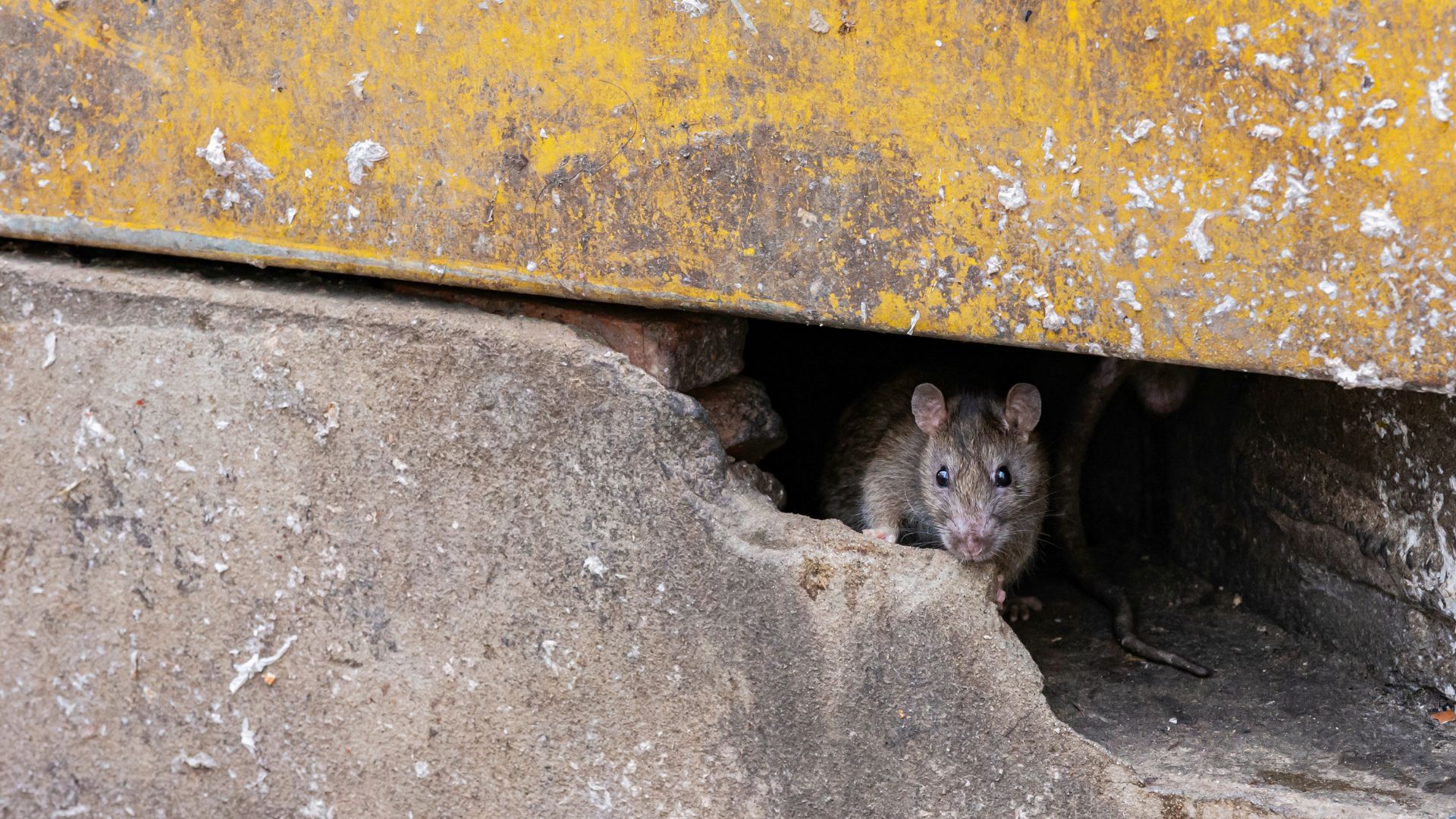
You might be surprised by how small of a gap rats can fit through, so your external structures like sheds are a huge target for rats looking to nest. Similar to how you'd get rid of spiders in your home, sealing potential entry gaps is an important step to keeping the pests away.
Laurence Barnard, professional & speciality solution Manager for pest control company BASF, explains, "Rodents can fit through surprisingly small openings – mice can get through gaps as small as 6mm while rats can squeeze through a 10mm opening – so look out for wear and tear in walls, piping, doors and windows."
Should you find any of these entry points, Laurence suggests using hardwearing material to fix them as rats can chew through all kinds of materials including wood, dry walls and even concrete.
"Many people find that garages and sheds are more susceptible to infestations than the house itself. This is because outbuildings tend to be less structurally sound, often have less foot flow and are used as storage, which makes them the perfect place for rodents to nest and hide," says Laurence.
GERAWOO Stainless Steel Mesh Gap Blocker, 20ft: £9.99 at Amazon
If you've found gaps in either your external structures or drainage pipes then using a steel wool mesh like this is great for keeping any small rodents out. It's designed specifically to stop rats or mice from being able to squeeze through.
4. Seal off compost bins
If you're an avid gardener and love sustainable garden ideas, the chances are that you are making compost at home. Whilst compost bins are usually extremely low maintenance, their smell and contents can be a huge magnet for rats and other pests.
"Compost bins are another significant attraction for rats due to the food waste and damp environment they provide," explains Daniel Steward, managing director at Shield Pest Control.
"Ensuring that your compost bin has a secure lid that rats cannot penetrate is crucial. Additionally, regular maintenance of the compost, such as turning it to reduce dampness, can help deter rats," Daniel says. You can use a fork to do this, whether your compost is stored in a bin or a raised bed.
Home Centre 7L Odour-Proof Compost Bin with Lid, £11.85 at Amazon (was £13.95)
This sleek compost bin is both odour-proof and has a secure lid with an animal-proof handle - perfect for keeping pests away.
5. Use natural deterrents
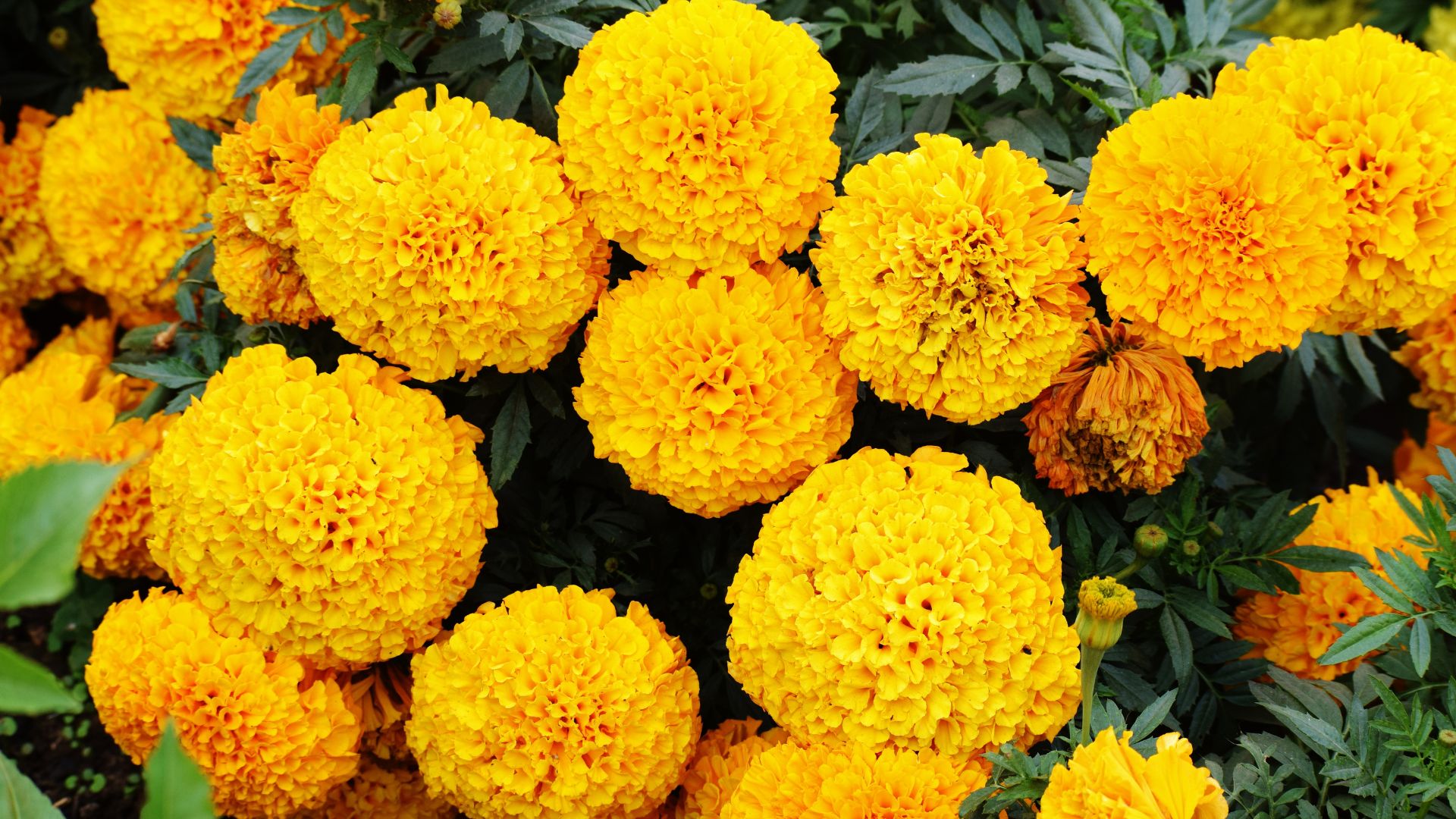
Whilst there are harmful and drastic measures you can take aside from prevention, we'd recommend using natural deterrents that won't hurt any animals, rat or not. Some chemical deterrents can even cause more harm to your garden, especially when used around plants or on your grass.
Sarah says, "Another effective method is to use natural repellents. Plants like lavender, rosemary, and marigolds have scents that rats dislike, so planting them around your garden can act as a natural deterrent."
Some essential oils like peppermint are said to deter rodents however the oils may not be strong enough or pose a big enough threat to truly keep the pests out of your garden. So should you be dealing with a rather extensive infestation this might not be the route to choose.
Reasons why rats are coming into your garden
There are three main reasons rats will be attracted to your garden, food, water and shelter. This is why taking all three of these necessities away from the pests is the best deterrent.
Pest control expert at MyJobQuote, Robert Collins, says, "The first thing that might attract them is easy access to food. Spilt birdseed, leftover pet food in bowls outside, or even overflowing bins can be a foodie treat for rats. They're not picky eaters and will happily devour anything they find."
Aside from food, any stagnant water present in your garden whether that's a birdbath or a clogged gutter can also be a huge attraction to rats. If you can, it's a good idea to regularly check your pipes and guttering, as well as install a birdbath that isn't easily accessible to rodents.
For the shelter issue, simply eliminate any potential hiding spots by sealing gaps and small openings. As mentioned previously this needs to be done with hard-wearing materials.
The damage rats can cause to gardens
It can be truly disheartening when you go to check on the alluring plants in your garden to find they've been eaten or unearthed. And while rats might not be your first thought when it comes to the suspects of the damage, they can be the cause of many issues in your garden.
"Rats can be a real headache for any gardener. Their presence can mean trouble for your plants in a couple of ways. The most direct damage comes from their constant need to chew," says Robert.
"You might find chewed leaves, gnawed holes in vegetables, or even fruits with bites taken out of them. Their destruction isn't limited to mature plants. They’ll happily dig up and devour planted seeds or bulbs before they even have a chance to sprout, ruining your plans for a vibrant garden."
Their burrowing can also become a huge issue, as they create tunnels underneath your garden which can disrupt your flower beds and leave holes in your lawn.
Robert says that these tunnels can disturb plant root systems as well as weaken the foundations of a shed or garden structure should the infestation be particularly bad.
Although these methods are effective for deterring rats from your garden, should you be worried about a possible extreme infestation then calling in a professional is the best thing to do.
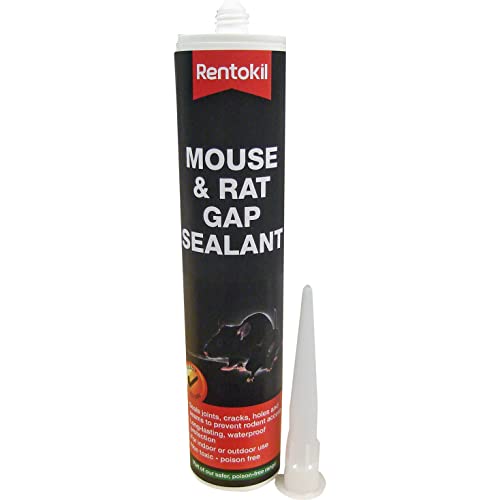
A handy gap sealant like this can help to keep pests away, both in and outside the house. Non-toxic and ideal for cracks, joints, holes and seams, you'll want one of these on hand.

Emily joined woman&home as a staff writer after finishing her MA in Magazine Journalism from City University in 2023. After writing various health and news content, she now specialises in lifestyle, covering unique cleaning hacks, gardening how-tos, and everything to help your houseplants thrive.
-
 Clodagh McKenna's lemon-yellow apron makes this overlooked essential a key part of her outfit - and it matches her kitchen
Clodagh McKenna's lemon-yellow apron makes this overlooked essential a key part of her outfit - and it matches her kitchenWe’ve all heard of matching your shoes to your handbag, but Clodagh McKenna has taken colour-coordination to another level.
By Emma Shacklock Published
-
 What self-tan does Kate Middleton use to achieve her natural-looking golden glow?
What self-tan does Kate Middleton use to achieve her natural-looking golden glow?The Princess of Wales is never seen without an effortlessly radiant, golden complexion
By Sennen Prickett Published
